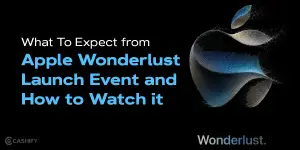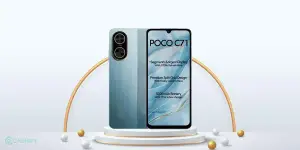When you are out shopping for your much-awaited gadgets you must have always checked the battery capacity whether it has a great battery life or not. You also might confuse about which one to choose: lithium-ion battery vs lithium-polymer battery? We have always believed, the bigger the battery capacity equals the better and long-lasting battery life. But that’s not always true and it depends on a lot of more factors as well. There are two main types of batteries that do exist in the market right now. One is Li-ion batteries that are traditionally a part of all our smartphones and portable gadgets. The other one, Lithium Polymer batteries are the ones that are now in most modern gadgets and most of the new flagship devices.
Also Read: Battery Tips: How To Extend Your Smartphone Battery’s Life
However, some differences do exist mainly being in terms of battery safety and longevity. Here are the detailed pointers that make Li-ion and Li-poly batteries different below:
What is a Li-ion battery?
In lithium-ion battery vs lithium polymer battery, Li-ion batteries have been used for a very long period of time and were and still are the choice of battery for all gadgets. This is due to the fact that these batteries are long-lasting, have a great energy density, and are comparably cheap to produce.
Li-ion or Lithium-ion batteries are rechargeable types of batteries that are highly portable. This is the reason why they are mostly used for electronic vehicles such as aerospace applications.
In this lithium-ion battery vs lithium polymer battery, the positively charged lithium-ions are carried by electrolyte from the anode to the cathode and vice versa. Lithium-ion batteries are highly durable and are great for longevity, these batteries can last for about two to three years or 300-500 charge cycles.
Also Read: How To Save Battery Life On iOS 14 With Automated Shortcuts
Merits of Lithium-ion battery:
Comparing lithium-ion battery vs lithium polymer battery, now that we know the meaning of Li-ion batteries, let’s discuss what merits they have with the help of the following points –
1. Cost-Effective – lithium-ion battery vs lithium polymer battery
As Lithium-Ion batteries have been used for a very long time, the cost of manufacturing the battery has reduced significantly. It is also much cheaper to implement a Li-ion battery for a portable gadget as these are readily available and costs much less.
2. High-Power Density – lithium-ion battery vs lithium polymer battery
When compared to lithium-ion batteries vs lithium polymer batteries, lithium-ion batteries can store three to four times more charge compared to batteries of similar size. It makes it not only compatible but also efficient and robust to use in portable gadgets.
3. Battery Life – lithium-ion battery vs lithium polymer battery
Comparing lithium-ion batteries vs lithium polymer batteries, Lithium-ion batteries tend to last longer than most of the other battery types. They can last for about two to three years or maybe even more, or about 300-500 charge cycles.
4. Maintenance – lithium-ion battery vs lithium polymer battery
Lithium-ion batteries are effortless to maintain and take care of as they do not require many complex processes for maintenance. Neither much effort nor much investment is in requirement to maintain lithium-ion batteries.
5. Constant voltage – lithium-ion battery vs lithium polymer battery
Another benefit of lithium-ion batteries is that they are capable of maintaining a constant voltage. No matter how heavy the load or usage is, a Li-ion battery will successfully keep the voltage constant.
Demerits of Lithium-ion battery:
When something has its merits, it will inadvertently also have its demerits. So, we have listed the few demerits of Li-ion batteries have that are as follows:
1. Efficiency decreases with time
Even though battery life is long-lasting, it is not the same throughout its period. In lithium-ion battery vs lithium polymer battery, Lithium-ion batteries tend to decrease in terms of capability and performance as time passes by.
2 .Fragile
These types of batteries are not suitable for extremely rough usage as they do not have much robust technology. As these batteries have liquid chemical electrolytes inside them, these batteries can get punctured easily with minimal force.
3. Unsafe at Higher Temperatures
At high temperatures, that is likely in cases for smartphones as the smartphones tend to overheat, the battery becomes unstable and can catch fire. Although electronic controllers are used to regulate the temperature, it is still quite unsafe to use these batteries in portable gadgets.
What is a Lithium Polymer battery?
The Lithium Polymer battery is another rechargeable kind of battery that uses a polymer electrolyte instead of a liquid electrolyte. This difference in choice creates lithium-poly batteries to be more efficient and safe for use.
The lithium polymer batteries are versatile in nature and therefore are available in different shapes and sizes. Most of the lithium-poly batteries are light in weight.
Merits of Lithium-poly Battery:
Lithium polymer batteries come with numerous benefits. Some of the major merits of these kinds of batteries are as follows:
1. Extremely Safe – lithium-ion battery vs lithium polymer battery
Lithium polymer batteries are incredibly safe to use. They have flexible packaging with aluminium that protects them from any kind of explosion or hazardous situation.
2. Light-weighted (highly portable) – lithium-ion battery vs lithium polymer battery
Lithium polymer batteries are highly portable, as they are very lightweight. It is because no heavy metal or liquid electrolyte is in its making.
Also Read: Why Is My Phone’s Battery Draining So Fast?
3. Versatile in nature – lithium-ion battery vs lithium polymer battery
Lithium polymer batteries are versatile in nature and available in different shapes and sizes. There is no limit in customizing its shape, and manufacturers take full advantage of that.
4. Low self-discharge level – lithium-ion battery vs lithium polymer battery
Lithium polymer batteries are good with their dischargeable characteristics. They are efficient and functional with a low self-discharge level. This means that the battery won’t discharge much when the battery is not in use.
Also Read: Top 8 Benefits Of Rooting Your Android Smartphone in 2020!
5. Thin with huge capacity – lithium-ion battery vs lithium polymer battery
Lithium polymer batteries are thin, which makes them highly compatible with mobile phone usage. They are available in thickness, even below 1 mm.
Even though they are thin, they have high capacities. They are 10-15% stronger and more capable than many of the other batteries of the same size.
Demerits of Lithium-polymer battery
1. Heavily priced
Lithium-poly batteries are also heavily priced when compared with the other battery types of the same sizes and specifications. Their prices are even higher than that of lithium-ion batteries. But these prices are expected to come down as these batteries start producing in masses and then the pricing can be reduced significantly.
2.Energy density
Lithium-poly batteries are less efficient in terms of energy density with even lesser charge cycles compared to lithium-ion batteries.
3. Shorter Life Span
The decay cycle of these Li-Poly batteries is much shorter compared to the Li-ion batteries and thus these batteries are not long-lasting.
Also Read: Here’s Why You Should Sell Your Old Gadgets Right Now!
The basic points of difference between Li-ion and Li-poly Batteries:
1. Pricing
Li-ion batteries win the race in terms of pricing when compared to li-poly batteries. However, both of the types are actually costly in broader terms.
2. Versatile
Li-poly batteries have more versatility than Li-ion batteries. It is because there is no limit to the manufacturing of their different shapes and sizes. They can be molded in various ways and used for various purposes.
3. High power
Both lithium-ion and lithium-poly batteries are suitable with high and robust power usages. However, lithium-ion batteries are more efficient and popular than lithium-polymer. They have higher energy levels and powers and are more suitable for heavy usages.
4. Lightweight and robust
Lithium-poly batteries are more desirable in terms of robust nature and lightweight than lithium-ion batteries. Because of the robust design, lithium-polymer batteries have the least chances of leakages.
5. Self Discharge
The lithium-polymer life cycle is shorter and the batteries store less energy than the same sized Li-ion batteries. Altough the Li-poly batteries are safer and also feature fast charging and has a low self discharge level, which means the batteries won’t drain off much if you don’t use them for quite sometime.
6. Portability and suitability
Both Li-ion and Li-poly batteries are portable. However, Li-poly batteries are more portable as they have a compact and thin design. As for suitability, Li-ion and Li-poly are both suitable and efficient in different ways. Li-ion is suitable for electric vehicles whereas Li-poly is suitable for mobile phones.
Why is Li-poly more in demand with modern technologies!
Lithium-polymer batteries are actually in higher demand with the latest and advanced technologies. It is because they are very flexible and can be molded in various shapes and sizes.
Moreover, lithium-poly batteries are safer than other battery types and deliver stable performance with low self discharge levels. They are highly compatible with smartphone usages and therefore have gained a reputation in the modern technology world.
Also Read: 5 Best Battery Saver Apps For Android Smartphones
Final Note
It was all about Li-ion and Li-poly batteries and the ways they are different. Indeed, both of them are beneficial for different purposes and usages and perform with excellence in various fields.
Sell phone online and recycle old phone with Cashify. Get the entire process completed at your doorstep.
















